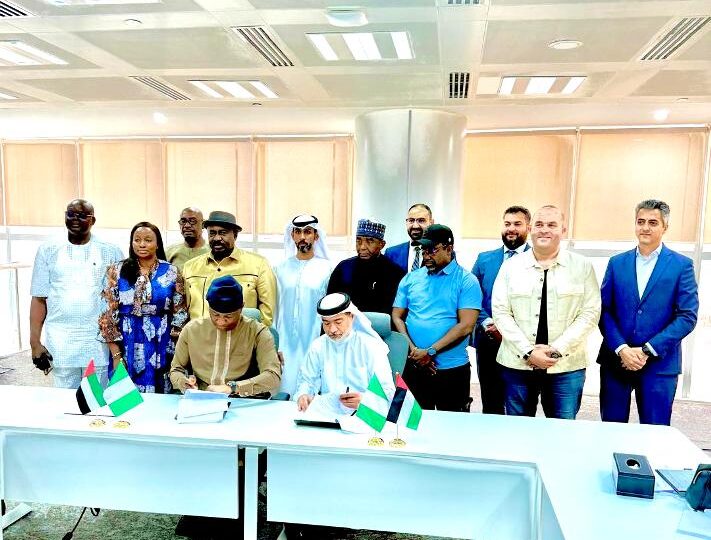
The federal government of Nigeria has signed a landmark memorandum of understanding (MoU) with DALIL UAE, on the deployment of Advanced Cargo Information (ACI) systems across Nigerian airports.
The Minister of Aviation and Aerospace Development, Festus Keyamo, who signed on behalf of Nigeria, described the agreement as a bold step towards repositioning the country as a leading aviation and logistics hub in Africa.
Keyamo, in a statement on Tuesday in Abuja, by the Head, Press & Public Affairs of the Ministry, Odutayo Oluseyi, stated that the implementation of the MoU would commence with feasibility studies in October 2025, followed by a nationwide rollout in the third quarter of 2026.
He hinted that the adoption of ACI systems would be a game-changer for Nigeria’s aviation and cargo operations.
He added: “ACI will strengthen aviation security through early detection of high-risk cargo, reduce clearance bottlenecks, streamline cargo processing, and improve efficiency, enhance government revenue assurance via real-time data capture, facilitate international trade, and boost Nigeria’s position as a regional logistics hub that aligns with global best practices and ensures compliance with ICAO and WCO standards.”
Keyamo, emphasised that the partnership with DALIL UAE, a globally-recognised provider of aviation security and cargo solutions, goes beyond technology transfer, as it seeks to entrench resilience, efficiency, and competitiveness in Nigeria’s aviation value chain.
“This MoU is not just about technology transfer; it is about building resilience, efficiency, and competitiveness in Nigeria’s aviation sector. Nigeria is now set to leverage cutting-edge innovation to drive security, trade facilitation, and revenue growth,” he stated.
He further assured that the federal government would continue to provide the enabling policy environment necessary for the smooth implementation and sustainability of the project.
“With this development, Nigeria joins a select group of nations deploying advanced cargo intelligence solutions to enhance safety, boost efficiency, and support global trade,” he added.
Kasim Sumaina



